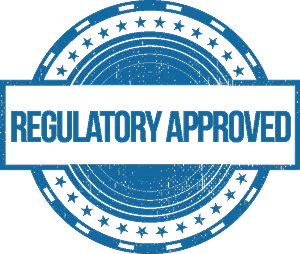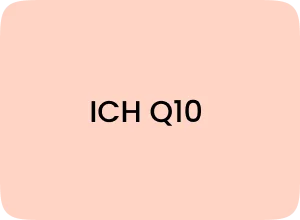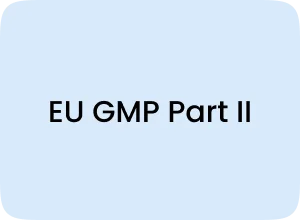APQR Automation & Tech Services
with Data, Insights, and Technology
The Gaps and Challenges in Pharma APQR Today
Data
Regulatory
Risk
Documents
How Can APQR Keep Up with Modern Pharma Challenges?
- Standardized Data – Ensure accuracy and consistency.
- Automated Reporting: Agentic AI to generate APQR reports.
- AI-Driven Insights: Use GenAI to analyze quality trends & predict risks.
- Real-Time Monitoring: Track CQAs and production risks continuously.
- Integrated Systems: Single platform for all APQR documentation.
- Collaboration Boost: Intelligent agents coordinate tasks across teams.

End-to-End APQR Solutions for Pharma Excellence
Agentic AI: Multi-Agent Intelligence for APQR
Gathers relevant data from structured and unstructured sources, including ERP, MES, LIMS, and QMS. Uses retrieval-augmented generation (RAG) or vector databases to ensure the report has accurate facts, numbers, and deviation summaries.
Transforms the collected data into a coherent, structured draft using learned templates and formal report style. Works section by section to ensure no data or required section is omitted.
Reviews and refines the draft for completeness, style, and accuracy. Provides iterative feedback or directly revises content, ensuring the report aligns with regulatory and organizational standards.
Validates key numbers and statements against source data to ensure compliance and accuracy. Flags discrepancies for correction before human review, enhancing audit readiness and reliability.

Helping Pharma Companies & Product Teams Plan, Implement, and Leverage AI-Driven APQR Solutions with Confidence
Beyond Reports:
GenAI for Smarter APQR
Human-in-the-Loop: AI with Expert Oversight
Key Benefits of Agentic AI + GenAI APQR
- 70–80% manual effort reduction
- Faster report generation cycles
- Parallel data processing
- Automated CAPA summaries
- Real-time insights delivery
- Reduced review bottlenecks
- AI-assisted data validation
- Context-aware fact extraction
- Historical template alignment
- Error-free CAPA tracking
- Consistent regulatory language
- Reduced human errors
- Audit-ready reports
- End-to-end CAPA traceability
- Role-based access control
- Electronic signatures (FDA 21 CFR)
- Regulatory-ready reporting
- Transparent deviation tracking
- Deviation trend forecasting
- CAPA effectiveness scoring
- Anomaly detection in batches
- Risk-based prioritization
- Early warning of quality issues
- Predictive QA recommendations
- Faster review cycles across teams
- Improved decision confidence
- Reduced approval bottlenecks
- Clear accountability and ownership
- Higher QA team alignment
- Smarter human-AI collaboration
- Consistent quality across products
- Seamless multi-site operations
- Handles growing data volumes
- Quick adaptation to new standards
- Supports multiple product lines
- Future-proof APQR processes
Audit-Ready Compliance

| Essentials | Met |
| End-to-end CAPA traceability | |
| Full audit trail of all actions | |
| Electronic signatures for approvals | |
| Data integrity and version control | |
| Access control with role permissions | |
| Automated deviation and CAPA validation | |
| Regulatory-ready documentation |

into Regulatory-Ready Insights?
Get rid of grey areas. Welcome clarity.
Regulatory Frameworks Guiding APQR Excellence
Our expertise spans the key EU and UK regulatory frameworks, helping pharma teams conduct APQRs with full compliance, quality oversight, and process excellence.




The Case for Cautious Adoption of Next-Gen APQR

Pharma faces unprecedented complexity – massive datasets, evolving regulations, and the growing need for predictive quality insights. Generative AI and Agentic AI offer the promise of transforming APQR into a strategic, insight-driven process, yet their adoption cannot be blind. A measured, thoughtful approach ensures AI augments human expertise, preserves compliance, and builds trust in every report. By embracing next-gen APQR technology responsibly, companies can accelerate quality reviews, anticipate risks, and achieve lasting operational excellence.
Frequently Asked Questions (FAQ's)
APQR, or Annual Product Quality Review, is a systematic evaluation of a pharmaceutical product’s quality over a defined period, usually annually. It reviews batch data, deviations, CAPA effectiveness, and manufacturing trends. APQR ensures compliance with EU and UK GMP standards and helps companies identify process improvements.
Generative AI can quickly synthesize structured and unstructured data from multiple systems into coherent, regulatory-ready reports. It summarizes deviations, CAPAs, and trends while enabling predictive insights. By automating repetitive tasks, GenAI allows QA teams to focus on analysis and decision-making rather than manual data compilation.
Agentic AI divides complex tasks among specialized AI agents – like research, writing, editing, and fact-checking – mimicking how a human team would collaborate. This ensures each section of the APQR is accurate, compliant, and contextually consistent. It also allows multi-agent workflows to handle large datasets efficiently.
AI adoption accelerates report generation, enhances accuracy, and provides predictive insights for risk management. It enables a proactive approach to quality, identifies trends earlier, and reduces manual workload. With EU and UK regulations evolving, AI-driven APQR ensures faster compliance and operational excellence.
Absolutely. AI supports drafting, analysis, and fact-checking, but human expertise remains critical. Human reviewers validate content, provide corrections, and ensure compliance with regulatory standards. This Human-in-the-Loop approach ensures AI augments, rather than replaces, QA judgment.
Yes. AI can analyze historical data, identify trends, and flag anomalies or recurring deviations. Predictive modeling helps anticipate potential quality issues before they escalate, allowing QA teams to take timely corrective actions. This proactive approach improves product quality and reduces compliance risks.
AI-driven APQR frameworks are designed for scalability. Cloud-based or hybrid deployments can handle large volumes of data across multiple products and sites. As new products or datasets are added, multi-agent workflows and automated data pipelines ensure consistent, efficient reporting without slowing down the process.
Modern APQR platforms use end-to-end encryption, role-based access, and audit logging to protect sensitive data. Cloud deployments comply with GDPR and other data protection regulations. Security is built into every step, from data ingestion to report generation, ensuring regulatory and internal compliance.
Key benefits include faster report generation, predictive insights, enhanced accuracy, improved CAPA effectiveness, and reduced manual effort. Multi-agent orchestration and human-in-the-loop oversight ensure reports are both intelligent and compliant. Ultimately, AI helps pharma companies achieve operational excellence while staying regulatory-ready.

















 Talk to Our
Consultants
Talk to Our
Consultants Chat with
Our Experts
Chat with
Our Experts Write us
an Email
Write us
an Email







